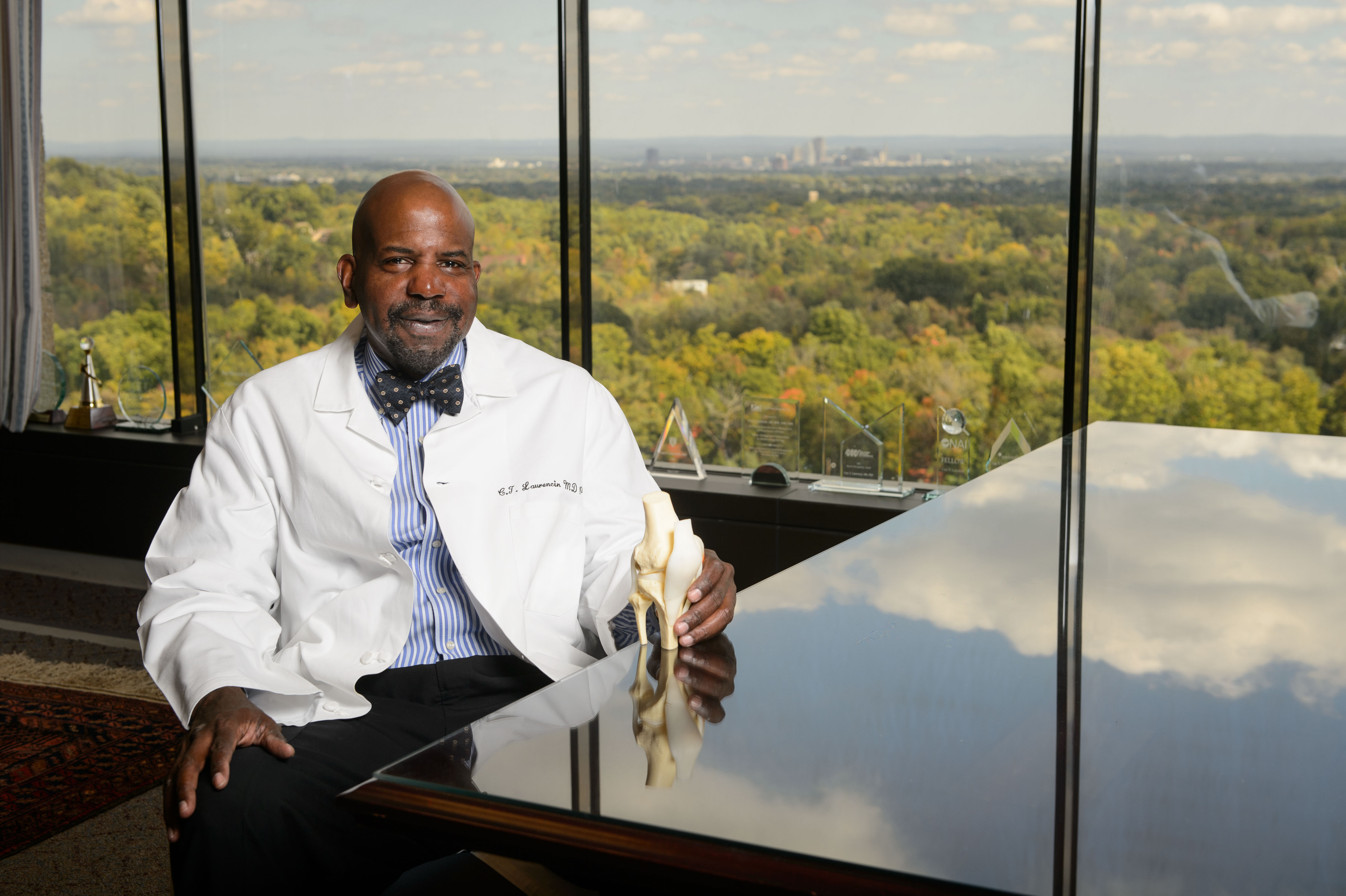Dr. Cato T. Laurencin, founding director of the Institute for Regenerative Engineering and the Sackler Center for Biomedical, Biological, Physical and Engineering Sciences at the University of Connecticut, is the winner of the 2019 Philip Hauge Abelson Prize, presented by the American Association for the Advancement of Science.
An eminent biomedical engineer and orthopedic surgeon, Laurencin is being honored for his unique contributions to the advancement of science. The Abelson Prize recognizes his global leadership in biomedical technology innovation, public service in shaping United States technology policy and invaluable mentorship to a generation of minority scientists.
“Prof. Cato T. Laurencin is the foremost scientist-biomedical engineer in our country today and a national and international leader in science and technology innovation,” Kazem Kazerounian, dean of the University of Connecticut School of Engineering, wrote in the award nomination. “Dr. Laurencin is a towering figure in science and technology.”
Laurencin’s seminal papers and patents have had wide-ranging impacts on human health, launching the use of nanotechnology in musculoskeletal regeneration and ushering in a new era in orthopedic therapies. His research inspired the development of biocomposite interference screws, which fix bone to soft tissue and are used in at least 25 percent of the more than 500,000 anterior cruciate ligament (ACL) reconstruction surgeries performed worldwide each year.
Likewise, the soft tissue implants that Laurencin has developed — the STR graft for rotator cuff regeneration and the Laurencin-Cooper (LC) Ligament for ACL regeneration — have been declared breakthrough technologies. The rotator cuff graft lessens pain and speeds up recovery time following shoulder surgery, and the ACL device, expected to play a similar role in knee surgeries, has been implanted in patients as part of a large clinical trial in Europe. National Geographic named the LC Ligament one of its “100 Scientific Discoveries that Changed the World” in 2012.
Laurencin has also used his authoritative voice to guide national technology policy. Because of his successful experience serving on the Food and Drug Administration’s orthopedic device panel, Laurencin was appointed to the National Science Advisory Board to help revamp the agency and its mission of providing scientifically based evidence to support the approval of devices, drugs and biologics. He has served on numerous advisory boards for the National Science Foundation and the National Institutes of Health and was the faculty leader in the development of the Bioscience Connecticut Initiative for the State of Connecticut. Bioscience Connecticut now serves as a model for government-academic innovation partnerships around the country.
In addition to his pioneering research and policy work, Laurencin has provided invaluable mentorship to a new generation of minority STEM professionals. Eight of his 125 former minority mentees now hold tenured or tenure-track faculty positions in biomedical engineering. “Considering that only a handful of African Americans hold tenure-track appointments in biomedical engineering nationally, it is difficult to overstate the impact that Dr. Laurencin has had on diversity in this field,” said Yolanda George, former deputy director of AAAS Education and Human Resources, in presenting him with the 2012 AAAS Mentor Award. Laurencin also serves as editor-in-chief of Springer Nature’s Journal of Racial and Ethnic Health Disparities.
Laurencin has received many other awards, including the National Medal of Technology and Innovation and the Presidential Award for Excellence in Science, Mathematics and Engineering Mentoring from former President Obama. He is a peer-elected member of the National Academy of Engineering and the National Academy of Medicine, and the American Institute of Chemical Engineers named him one of its 100 Chemical Engineers of the Modern Era.
The AAAS Board of Directors established the Abelson Prize in 1985 to recognize individuals who have “made signal contributions to the advancement of science in the United States.” It is given annually to either a public servant, in recognition of sustained exceptional contributions to advancing science, or to a scientist whose career has been distinguished both for scientific achievement and for other notable services to the scientific community. The award consists of a commemorative medallion and an honorarium of $5,000. It was inspired by the late Philip Hauge Abelson, long-time senior adviser to AAAS, editor of Science and president of the Carnegie Institution of Washington, who died in 2004 after more than 60 years of service to science and society.
Laurencin will receive the award during the 185th AAAS Annual Meeting in Washington, D.C., on Feb. 14, 2019.



